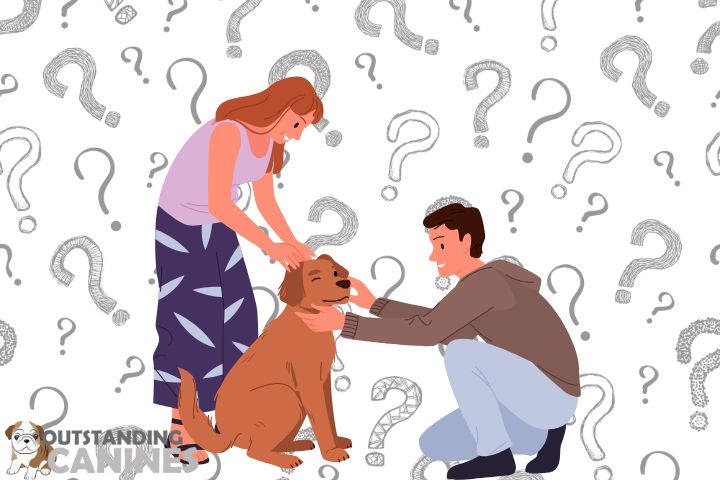10 Essential Dog Care Tips Every Pet Owner Should Know
2025-01-21 07:24:38
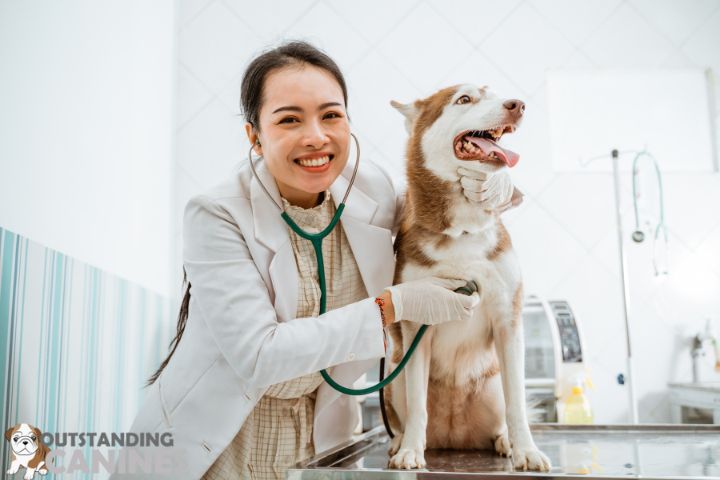
Taking care of your dog calls for more than just feeding and housing. Your four-leg friend deserves the best dog care checklist if you want a happy, joyful life. These simple dog care tips can help you keep your furry friend in terrific health regardless of your expertise as a pet parent or Vancouver, Canada new dog owner. A dog that is well-kept develops not only physically but also emotionally and psychologically, therefore strengthening your relationship with your companion. Good care is knowing your dog’s particular requirements and acting early on their health and welfare. From dog nutrition to exercise, grooming to training, every element of your dog’s care is absolutely vital to guarantee their optimum life.
Tip 1: Feed Your Dog a Balanced Diet
The first thing in our dog care tips list is: Your dog’s general state of health depends on a balanced dog food and diet. A carefully balanced food is the pillar of your dog’s health and happiness.
Selecting dog food includes ensuring the right balance of proteins, fats, carbs, vitamins, and minerals. Your dog’s health depends on every nutrient; proteins boost muscular development; fats supply energy and help vitamin absorption; and carbohydrates offer a quick energy source. Premium dog food fit for your pet’s age, weight, and health needs can make a great difference. Remember, seeing a veterinarian will help you choose the best food for your pet so that they have all the required nutrients to flourish.
Dog Nutrition:
Though you would want to enjoy your meals with your dog, you should avoid giving it human food even if it would be tempting. Many human foods are unfit for dogs and could lead to additional medical problems, obesity, or digestive problems. Rather, focus on quality dog food and treats designed especially for canine nutrition. On a diet strong in natural foods free of synthetic additions, your dog will remain healthy and happy. Although snacks are a great way to honor good behavior, if one wishes to maintain a balanced diet they should be given sparingly.
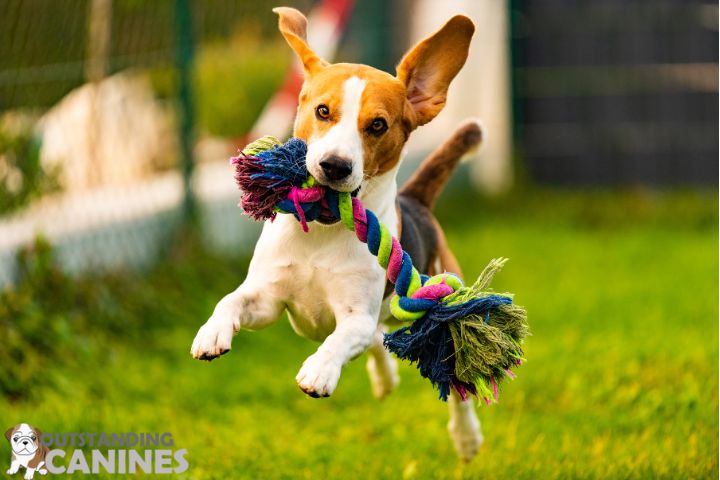
Tip 2: Regular Exercise for Physical and Mental Health
The second point in our dog care tips list: Exercise helps you to keep your dog in both psychological and physical state. A satisfied and healthy dog depends on you ensuring it gets sufficient mental and physical stimulation.
An excellent exercise program for your dog mostly consists of daily walks. The breed and energy level of your pet will guide whether you should incorporate swimming, jogging, or even fetch-style play. These activities increase cardiovascular health, help your dog maintain a proper weight, and strengthen muscles. Regular exercise can also help to prevent sometimes ensuing pent-up energy behavioral problems. Vancouver’s several dog-friendly parks and walkways offer the perfect environment for these activities, thereby making exercise fun and satisfying for your friend.
As important as physical exercise is keeping your dog mentally active. Puzzle toys keep your dog busy and test their capacity for problem-solving, therefore stimulating their mind. Teaching your dog fresh commands or tricks and praising good conduct will assist to keep their interest in training sessions. Furthermore, helping your dog’s general mood, prevent boredom, and reduce anxiety is mental stimulation. Combining physical and mental activity assures your dog health care level.
Tip 3: Keep Up with Routine Veterinary Visits
Regular veterinarian visits help you to monitor the condition of your dog. Preventive canine health care is based on a close relationship with your veterinarian.
Dog Health Care:
Responsible dog ownership largely consists of scheduling canine immunizations and annual visits. These checkups ensure your dog’s continuous protection from preventable diseases and assist your veterinarian to assess its general state. Talk about any observations or concerns you have about your dog’s conduct, diet, or physical condition on every appointment. Regular veterinary checkups help you early on to identify probable health issues, which will greatly influence your dog’s quality of life and the direction of treatment.
Health Screenings:
Including regular health visits into your dog’s calendar is another essential part of a dog care tips list. Blood tests could point out underlying medical conditions that might not be clear-cut immediately. Dental exams help you prevent gum disease and other oral health problems compromising your dog’s general condition. Tests for parasites also help identify and treat flea, tick, and worm infestations; ignoring these issues can cause serious medical problems. Keeping up regular visits allows you to ensure that your dog remains free from pain, healthy, and content.
Not merely a precaution, regular veterinary appointments are a proactive method of dog care that will help you avoid expensive operations and assure your pet life long, healthy ones. A pillar of healthy pet ownership, consistent veterinarian treatment guarantees peace of mind and ensures the greatest possible health of your dear pet.

Tip 4: Grooming: Keeping Your Dog Clean and Comfortable
Good grooming helps your dog to appear and feel most natural. Grooming is a required part of dog care tips list that improves health and well-being; it is not only a cosmetic routine.
Brushing:
Maintaining the coat of your dog largely depends on regular brushing. By removing filth, avoiding matting, and substantially reducing shedding, it promotes the comfort of your dog as well as the cleanliness of your house. Your dog’s coat type—short, long, curly, or wiry—should guide the sort of brush you choose. Brushing not only keeps the coat clean but also stimulates the skin, thereby promoting excellent blood circulation and distribution of natural oils preserving the shine and health of the coat. Early on, this regular bonding ritual might also help you identify any unusual lumps, pimples, or parasites on the skin of your dog.
Bathing:
Giving your dog necessary showers with a mild dog shampoo can help to maintain its cleanliness and odor free condition. Still, over-bathing has to be avoided since it can strip natural oils from their skin and cause dryness and irritation. See your veterinarian to find out how regularly the breed and way of life of your dog should be cleaned. A decent bath is defined by lukewarm water and thorough rinsing. To try to avoid moisture-related skin problems and preserve your dog’s comfort, gently dry it after washing using a towel or a pet-friendly hair drier on a low setting.
Apart from their appearance, regular grooming helps your dog to be generally healthy and happy. Including washing and brushing into your dog care routine ensures that your pet is clean, comfortable, and well-cared-for—that is, reflects the essence of dedicated dog health care.
Tip 5: Dental Care: Protecting Your Dog’s Smile
Although commonly overlooked, oral health determines your dog’s general condition. Maintaining your dog’s oral health is essential for complete guidance on dog care tips list since it guarantees its general vitality and satisfaction.
Brushing Teeth:
Keeping your dog in good dental shape largely hinges on consistent brushing. Use a toothbrush and toothpaste developed especially for dogs to correctly remove plaque and stop gum disease. Regular brushing not only keeps your dog’s teeth clean but also helps early diagnosis of dental issues such as bad breath, swollen gums, or loose teeth. Developing a brushing schedule for your dog’s teeth can also help to simplify and increase enjoyment of the process for you and your pet. Successful dental treatment depends on consistency and patience; hence, it becomes a bonding activity that improves the health of your dog and deepens your relationship.
Dental Treats:
Another great approach to keep your dog’s teeth clean and healthy is by using dental chews and toys. These devices are meant to massage the gums and lower plaque accumulation, therefore encouraging improved dental hygiene. Dental chews are a fun treat for your dog that also have several tastes and textures, which helps with their practical use. To avoid choking or digestive problems, pick dental treats fit for your dog’s weight and chewing behavior. Including dental treats into your dog’s daily regimen will help to maintain a healthy mouth and enhance normal brushing.
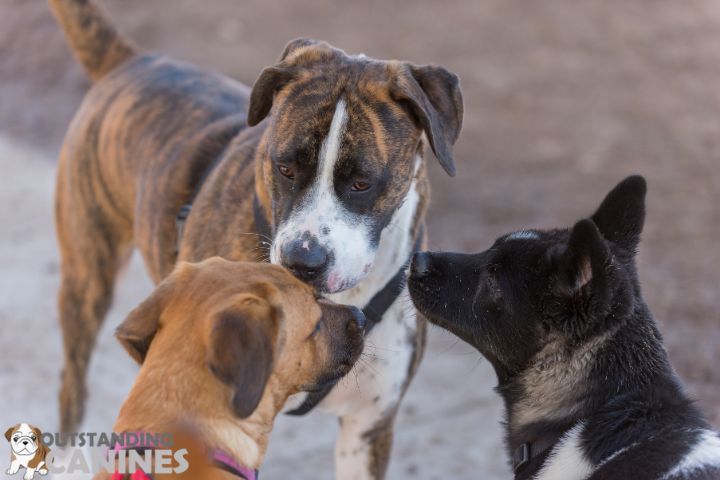
Tip 6: Proper Socialization for a Well-Behaved Dog
Socializing is largely responsible for training a well-mannered dog. Essential component of a comprehensive dog care tips list, it significantly influences your dog’s attitude and actions.
Exposure:
Early on exposure to a variety of situations, people, and other animals will help your dog become less apprehensive and more confident. This exposure should include different sounds, sights, and sensations so that your dog may adapt to diverse situations without developing hostility or fear. Walks in numerous communities, visits to dog parks, and interactions with many types of people will help your dog grow socially. Good socializing ensures that your dog feels safe and comfortable in new surroundings, thereby reducing the likelihood of behavioral issues and enhancing their whole quality of life.
Training Classes:
Sessions of puppy socialization are a proactive way to help your dog to exhibit suitable behaviour and good manners. These lessons provide your dog a disciplined environment where she might pick up commands and essential skills while interacting with other dogs. Leading these sessions, professional trainers help your dog develop appropriate social skills and away from destructive habits like too frequent jumping or barking. Training courses also give pet owners an excellent opportunity to grow the bond with their dogs and pick practical knowledge in training strategies. Training and socializing investments help to build a content and well-adjusted pet.
Not merely about introducing your dog to new events, correct socializing is about developing good relationships that inspire confidence and trust. Including these socializing activities into your dog care routine ensures that your pet grows into a well-adjusted and well-mannered friend, thereby making every interaction joyful and free from tension.
Tip 7: Mental Stimulation to Avoid Boredom
As important as physical exercise is keeping your dog’s mind occupied. Another main component of comprehensive dog care tips list, mental stimulation keeps your pet generally healthy and happy.
Interactive Toys:
One fantastic way to keep your dog busy and challenge their problem-solving capacity are interactive toys. Among other types of toys, puzzle feeders, treat-dispensing balls, interactive games requiring your dog to think and strategies to get a reward, exist. These toys not only provide entertainment value but also mentally stimulate your dog, therefore reducing the possibility of bored-driven destructive behavior. Including interactive toys into your dog’s daily activities helps you ensure they remain engaging, curious, and cognitively bright.
Tip 8: Training: Teaching Good Behavior from the Start
A well- mannered dog results from training laying the groundwork. Good behaviour and a close relationship with your pet depend on including efficient training methods into your schedule. Any thorough advice on dog care tips must include this since it guarantees a harmonic coexistence between you and your animal friend.
Basic Commands:
Starting clear communication with your dog requires basic commands like sit, stay, and come. Good behavior comes from these commands, hence consistent and mild training methods support their teaching. Everyday teaching of these commands helps your dog to understand what is expected of them, thereby enhancing the everyday interactions and their delight. Key is consistency; use the same motions and commands every time to prevent confusing your dog. This method not only promotes loyalty but also helps your dog to feel stability and consistency in their surroundings.
Positive Reinforcement:
Positive reinforcement methods are quite successful in motivating learning and honoring excellent behavior. Treats, congratulations, and affection are strong incentives to aid to support intended behavior. If your dog follows an instruction or shows good behavior, immediately reward it to create favorable associations. This method helps your dog enjoy training sessions and strengthens your bond. Positive reinforcement helps your dog to grow confident and trusting, which will boost its enthusiasm to follow your commands.
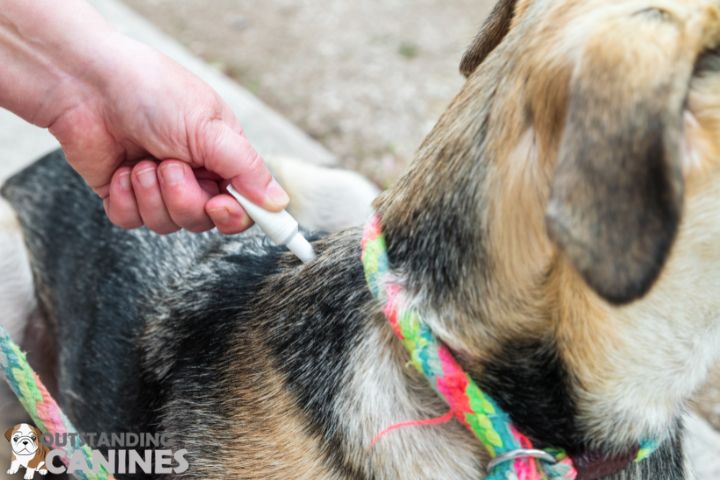
Tip 9: Protect Your Dog from Parasites
The health of your dog depends on the prevention of parasites. Effective dog care tips advice that protects your pet’s well-being mostly depend on making sure they are parasite free.
Flea and Tick Control:
Fleas and ticks can cause major diseases to your dog; hence they are not only a nuisance. Use preventive treatments recommended by your veterinarian to protect your cherished pet. Every one of these treatments—from collars to oral medications to local treatments—is supposed to provide effective control of fleas and ticks. Often, especially after walks in Vancouver’s parks or forested areas where these bugs are more abundant, check the coat of your dog. Early tick-borne disease risk reduction and flea identification and elimination will help to prevent infestations and thereby preserve the comfort and health of your dog.
Heartworm Prevention:
Heartworm disease is a major and possibly fatal illness brought on by parasitic worms living in the blood vessels and heart of afflicted dogs. Stopping this life-threatening disease depends on you using heartworm treatment as advised by your veterinarian. Among the several ways that heartworm preventives are available include injections, topical treatments, and monthly chewable tablets. Regular heartworm tests guarantee that, during their annual veterinary visit, your dog remains free from this deadly parasite. Since treatment for heartworm illness can be complicated and expensive, prevention is vital.
Good parasite prevention calls for both proactive behavior and frequent veterinary visits. Including heartworm prevention and flea and tick control into your dog care schedule guarantees that your pet lives parasite-free. Accept these preventative actions as part of your overall dog care advice; your pet will flourish free from the discomfort and threats of parasitic infestations.
Tip 10: Provide a Safe and Comfortable Environment
The welfare of your dog depends on a comfortable and safe environment. Making sure your pet feels safe and tranquil at home can enable them to be generally happy and healthy. This is a fundamental part of guidance on complete dog care tips.
Safe Space:
Make sure your yard and house are safe and free of hazards so your dog may live in peace. Eliminate any poisonous plants, sharp things, or little objects your dog could swallow. Make sure gates and fences are strong so your dog won’t escape. Set aside a comfortable bed or crate within your house so your dog may hide and feel protected. This allocated space should be peaceful and devoid of too loud noise or foot traffic so your pet may rest and relax. The comfort and sense of security of your dog can be much enhanced by a comfy bed with soft bedding.
Temperature Control:
Keeping your dog comfortable implies providing enough cover and maintaining the right temperature for their demand. Make sure your dog has a warm winter sleeping place free of cold flooring and drafts. Extra blankets or pet-safe heating pads could help to keep them cozy. In the summer, design interesting areas with lots of fresh water and shade to help to prevent overheating. Fans or air conditioning helps to regulate internal temperature, thereby making your house a comfortable place all year round. See how your dog behaves; then, change the environment as required to ensure their comfort.
Following these dog care rules will enable you to ensure your animal friend lives in good and healthy conditions. Remember that every dog is unique hence your approach of care should be tailored to meet the special requirements of your pet. Reflecting your commitment to the wellbeing and pleasure of your pet, dedicated dog care depends critically on a safe and comfortable environment. Happy pet parenting!


